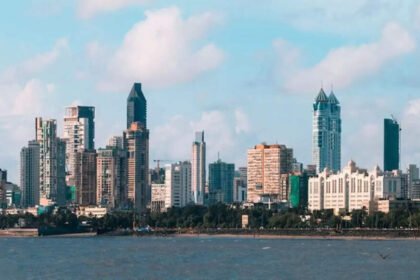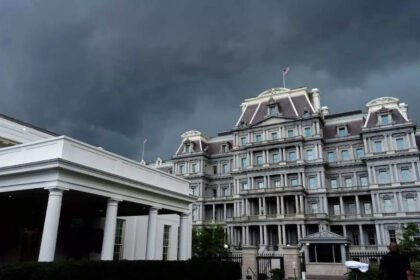Saudi Arabia’s Zakat, Tax and Customs Authority (ZATCA) has once again intercepted a major drug trafficking attempt, this time, 406,400 Captagon pills hidden inside sheep wool at the Haditha border crossing. As smuggling operations grow more deceptive, Saudi authorities continue to ramp up inspections, security protocols, and international cooperation in an unrelenting campaign against one of the region’s most dangerous narcotics.
Major seizure at Haditha crossing – The latest smuggling attempt
On Friday, officials from the Zakat, Tax and Customs Authority (ZATCA) at the Haditha border port in northern Saudi Arabia uncovered a large shipment of amphetamine pills, known as Captagon, concealed in a livestock consignment. The pills, totaling 406,400, were hidden within the wool of sheep, a tactic designed to bypass traditional inspections. The shipment had been declared as livestock, and during standard customs procedures, ZATCA deployed security screening technologies and K9 detection units, which successfully flagged the suspicious cargo. Following the seizure, ZATCA coordinated with the General Directorate of Narcotics Control, which led to the arrest of three individuals who were scheduled to receive the contraband inside the Kingdom. This bust underscores the increasing ingenuity of traffickers, as well as the rising pressure on Saudi Arabia’s border control systems to remain ahead of such tactics.
ZATCA’s anti-smuggling capabilities and national security mandate
ZATCA, formed through the 2021 merger of the General Authority of Zakat and Tax with the Saudi Customs Authority, has taken on an expanded role in protecting the Kingdom from illicit trade, especially narcotics. The authority operates across 48 air, land, and sea ports, including:
- King Abdulaziz Port in Dammam – the largest maritime gateway
- King Khalid International Airport in Riyadh – a major aviation hub
At land crossings, including Al-Haditha Border PortSau, di Arabia’s largest land port, linking the Kingdom to Jordan and the Levant’s gateway to the Arabian Gulf States. ZATCA carries out continuous inspections. The Al-Haditha port is strategically located in al-Qurayyat Governorate in al-Jawf Province, along a 745 km stretch of the Jordanian border, making it a critical checkpoint for inbound cargo from the north. ZATCA employs a combination of technologies and procedures:
- X-ray Scanners for full-container and package inspection
- AI-powered risk assessment systems to identify high-risk shipments
- K9 detection units trained to identify narcotics, explosives, and undeclared cash
- Manual inspection and coordination with national drug control agencies
Beyond narcotics, ZATCA enforces restrictions on items that violate public safety, religious values, or economic interests, such as weapons, alcohol, counterfeit goods, and unlicensed medications. The authority also encourages public participation by enabling anonymous tips via a hotline (1910), email (1910@zatca.gov.sa), and an international line (+9661910). Verified reports can earn monetary rewards and are handled confidentially.
Background on Captagon – Origins, risks, and illicit trade networks
Captagon, originally developed in 1961 under the pharmaceutical name fenethylline, was intended as a milder alternative to amphetamines for treating narcolepsy, depression, and a condition known at the time as “minimal brain dysfunction.” It was discontinued in the 1980s when governments, including the United States, classified it as a controlled substance with no accepted medical use. However, illegal manufacturing has surged, particularly in parts of Syria and Lebanon, where weak enforcement allows clandestine labs to thrive. Modern counterfeit Captagon pills often contain:
- Amphetamine and caffeine
- Other unidentified or toxic additives
- Highly addictive components that result in:
- Euphoria
- Sleeplessness
- Mental instability
- Increased aggression
Its popularity as a stimulant has led to nicknames like “jihadist drug” and “poor man’s cocaine”, reflecting both its use in conflict zones and its low production costs. The Middle East is a hotspot for Captagon consumption due to:
- High demand among youth and affluent users
- Conflicts that allow for drug production in lawless zones
- Massive profit margins for smugglers and trafficking groups
Saudi Arabia, due to its geographic proximity and economic status, remains a top destination for Captagon traffickers.
Recent seizures and Saudi Arabia’s expanding crackdown
The Haditha seizure is only the latest in a series of major busts carried out by ZATCA in recent weeks:
- On June 27, 2025, officials at
Jeddah Islamic Port uncovered a major shipment of Captagon pills concealed inside wardrobes. The seizure involved a total of 732,015 pills and was made possible through the use of advanced security technologies combined with thorough manual inspections. Following the discovery, ZATCA promptly alerted the General Directorate of Narcotics Control, resulting in the arrest of four individuals who were intended recipients of the drugs within Saudi Arabia.
- On July 26, 2025, Saudi authorities thwarted two separate attempts to smuggle over 69,000 Captagon pills through airports. These seizures took place at King Abdulaziz International Airport in Jeddah and King Khalid International Airport in Riyadh. In both cases, the traffickers had concealed the pills inside luggage linings, demonstrating increasing sophistication in their smuggling methods.
Common smuggling methods seen in recent years include:
- Pills stuffed in canned foods, chocolate bars
- Hidden inside vehicle parts, industrial machinery
- Strapped to or ingested by human couriers (“mules”)
- Embedded in furniture or textiles, as with the latest sheep wool concealment
Saudi Arabia’s approach to tackling this issue is not limited to borders. The government has expanded its international cooperation, including:
- Gulf Cooperation Council (GCC) joint task forces
- Interpol-led campaigns targeting global trafficking networks
- MoUs with neighboring states to share intelligence and coordinate responses
In 2023, Saudi Arabia hosted a regional Captagon summit, advocating for a unified strategy across the region to disrupt the manufacturing and distribution pipelines.
Legal framework and zero-tolerance policy
Saudi Arabia enforces one of the world’s strictest anti-narcotics laws, and penalties for smuggling drugs are severe:
- Lengthy prison sentences
- Heavy financial penalties
- Deportation for foreign nationals
- In severe cases, the death penalty, particularly for repeat or large-scale offenses
These laws reflect the government’s zero-tolerance stance and its priority of protecting public health, national security, and economic integrity.







